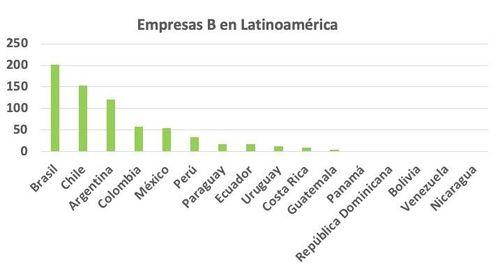As the urgency to find solutions to major problems such as climate change or the loss of resources such as water increases, people and consumers value more the importance of better managing our resources and environment. This can be seen in consumer preferences, which is where people also express their concerns. This can be seen even more clearly at this time of pandemic.
In this regard, a recent analysis carried out by the e-commerce platform Mercado Libre shows a 54% growth in new buyers in Mexico for its line of sustainable products during 2020. Along with this data, the same company conducted a survey among its users, finding that environmental concern among Mexicans grew 12% more during this pandemic period than other Latin American countries.
Analyses at the global level show similar data. The Economist Unit and WWF reviewed Google searches for sustainable products in different parts of the world between 2016 and 2020 and found an increase of 71%. McKinsey & Company, in a recent consumer survey in the United Kingdom and Germany, found that 57% of respondents consider making significant lifestyle changes to reduce their environmental impact.
One thing that can be seen with the information that is emerging is that the future seems to be more promising for those companies that have a business model that takes into account consumers' environmental concerns. This is especially so in the light of the experience of the current pandemic.
B companies as an alternative model
I would like to highlight in this article a particular type of company that has emerged in recent years and that is becoming more relevant in the current context. These are the companies called B, which, since their inception, have included good environmental and social behavior as part of their business model, and not just the maximization of profits.
The concept of Company B emerged in the United States in 2006, as part of an initiative to change the type of economy we currently have. It is launched by the B Lab organization and establishes that to be considered a B company, you have to pass a certification test that measures all environmental and social performance. This encompasses the impact that the operation of the business model has on workers, the community, the environment and customers.
In a world where price and quality differentiation tends to be increasingly reduced in several production cycles, the possibility of winning markets can be found in the relationship between companies and environmental sustainability. An example of company B is Patagonia, a company dedicated to producing equipment and clothing for outdoor activities, where its business model starts from making products with the lowest environmental impact, that are durable and that can be made of recycled materials.The first certification of a B company in Latin America was in 2012. There are currently more than 680 according to Sistema Lab's Directory of Companies B for Latin America and the Caribbean. The leading countries in terms of these companies are Brazil with 201, Chile with 154 and Argentina with 121.

Source: Causa Natura, based on Sistema Lab's Directory of Companies B for Latin America and the Caribbean.
Despite the pandemic crisis, the growth trend of B companies in Latin America seems to have continued. In Argentina, for example, they grew by 17% during 2020 compared to the previous year. For 2021, even greater growth is projected, of around 25%, which means about 40 more companies that will be certified.
For the case of Mexico, we have 55 companies, being the fifth country with the highest number. Among Mexican B companies is SmartFish, which sells high-quality fish products that are under good fishing management. They do this by partnering with Mexican artisanal fishermen to reduce intermediaries in the value chain so that they can obtain greater profits by fishing less and allowing consumers to have consumption options that help the sustainability of marine ecosystems. SmartFish recently won the Best Small Business award given by the UN Food Systems Summit and already has an operation with several distribution centers in Mexico City, expanding even in the current crisis.
The B Companies initiative shows how some companies in Latin America are responding and changing their lines of production and services, which even leads them to rethink their business model as a result of this growing consumer demand. This is more evident in the pandemic and will most likely last after it.It is to be expected that as Latin American consumers take more into account the factors of social and environmental responsibility in companies, we will see greater growth in this type of initiative in the coming years.



Comentarios (0)